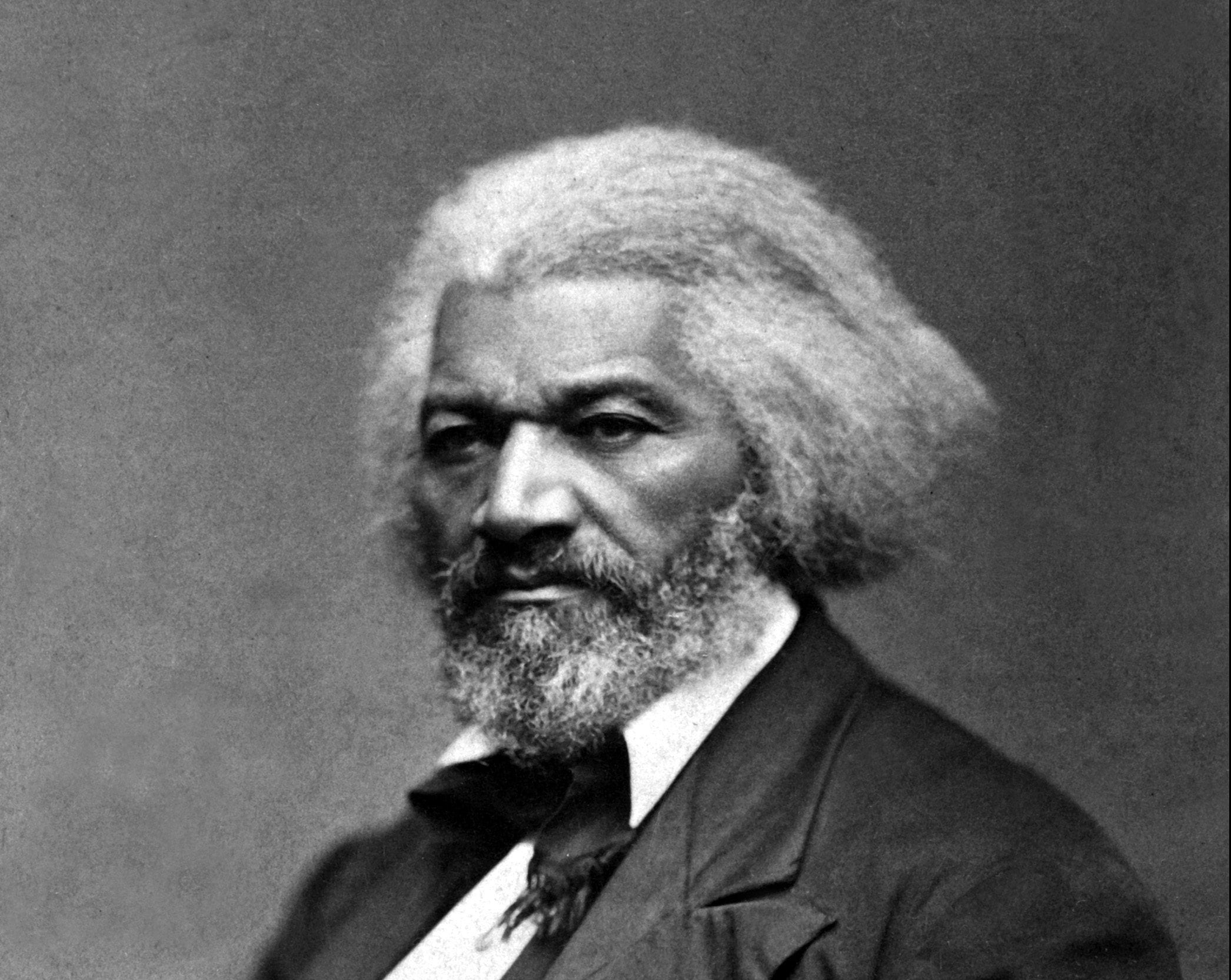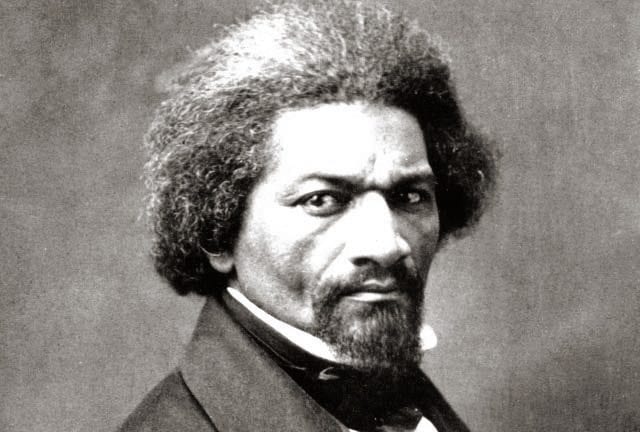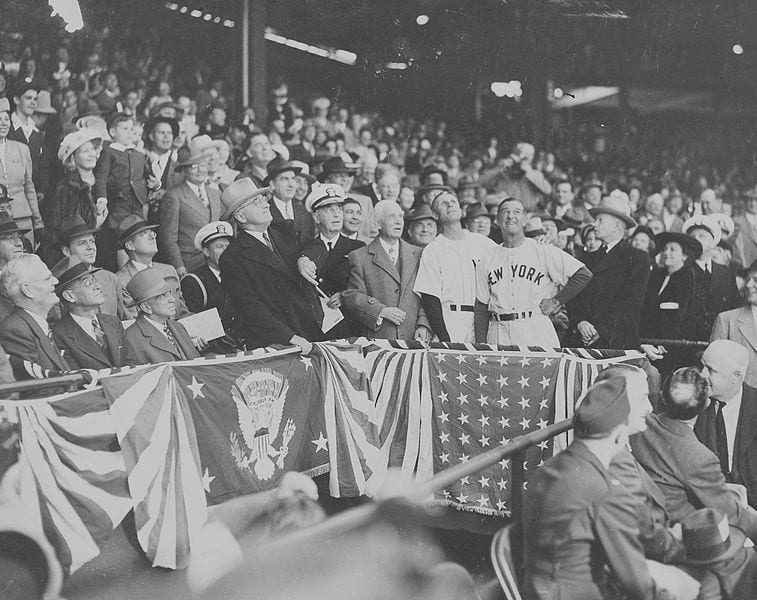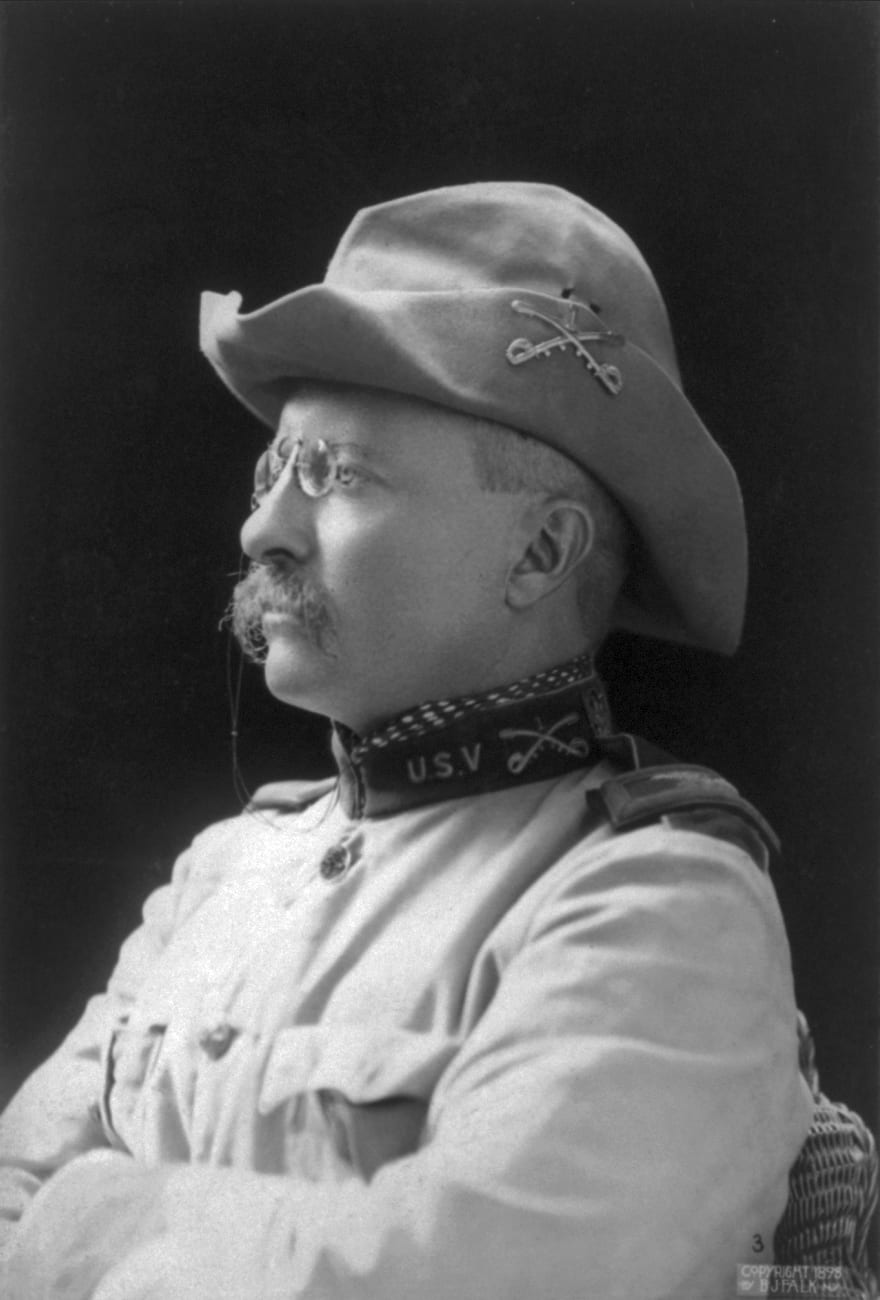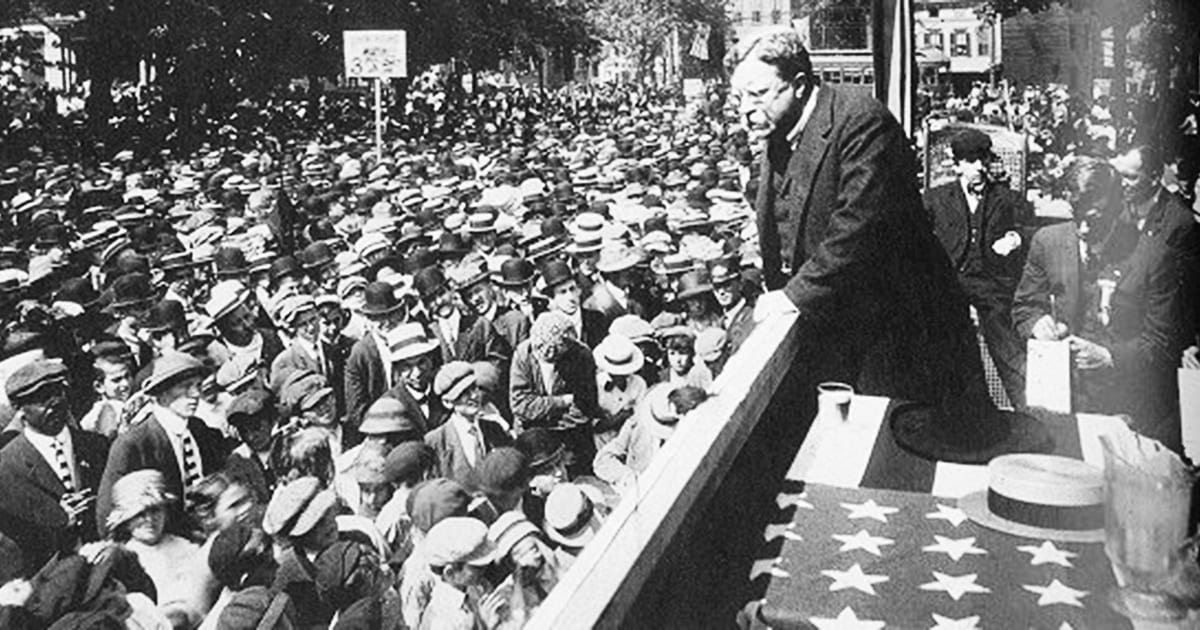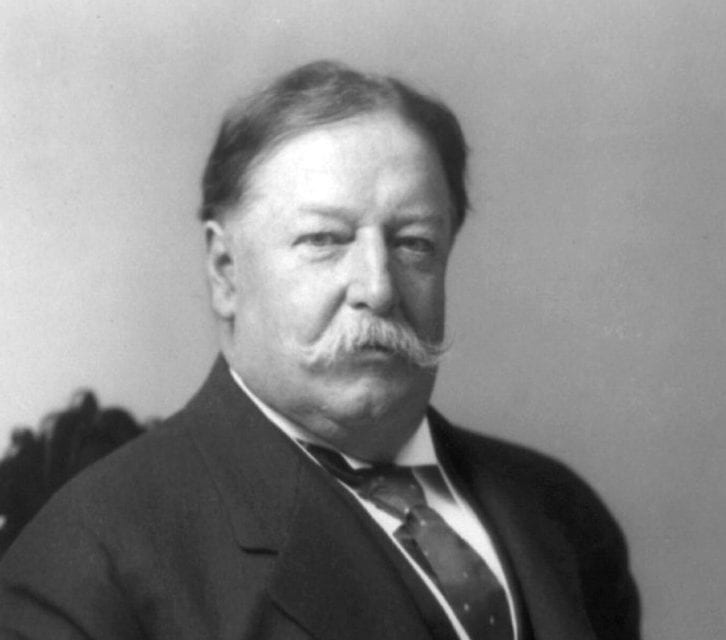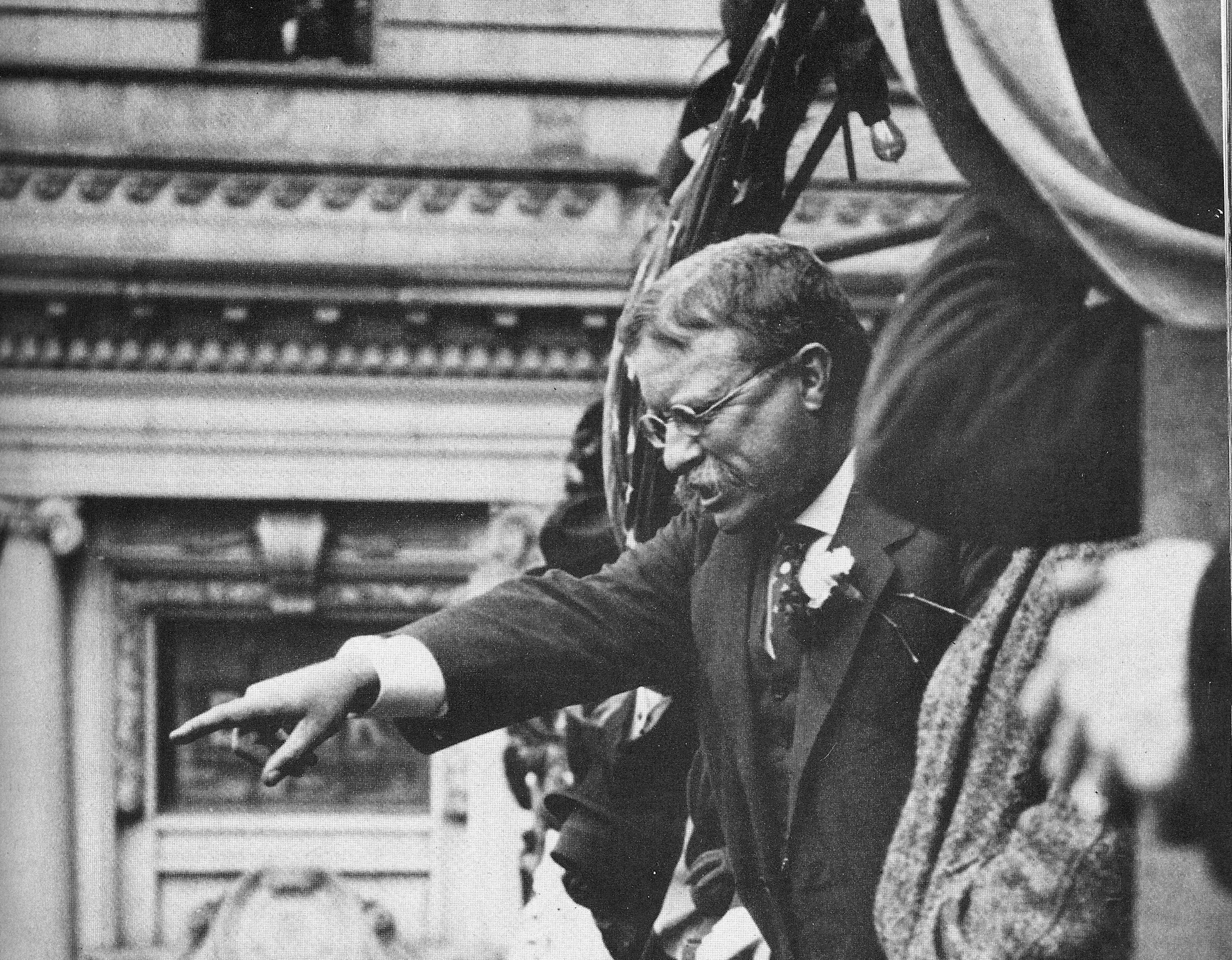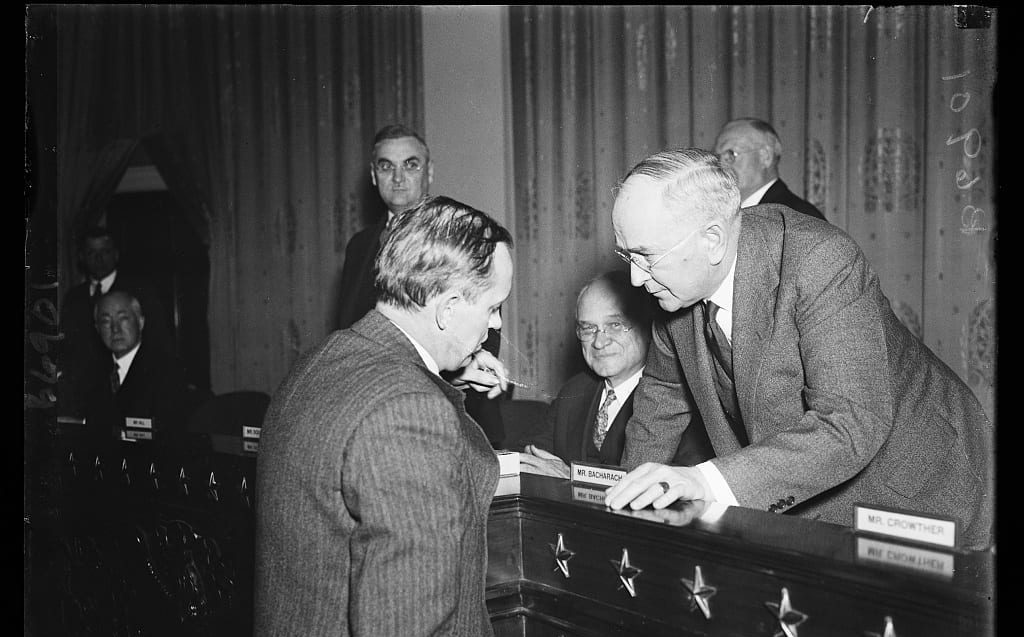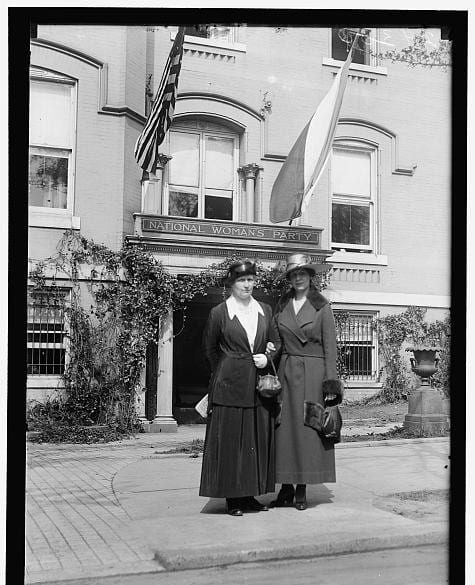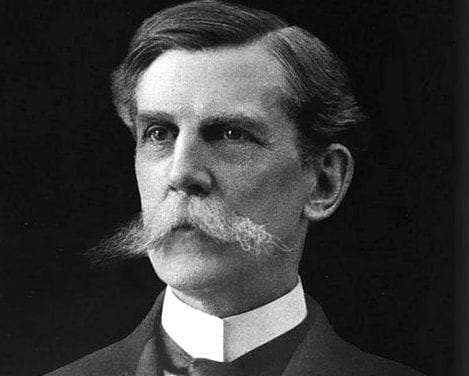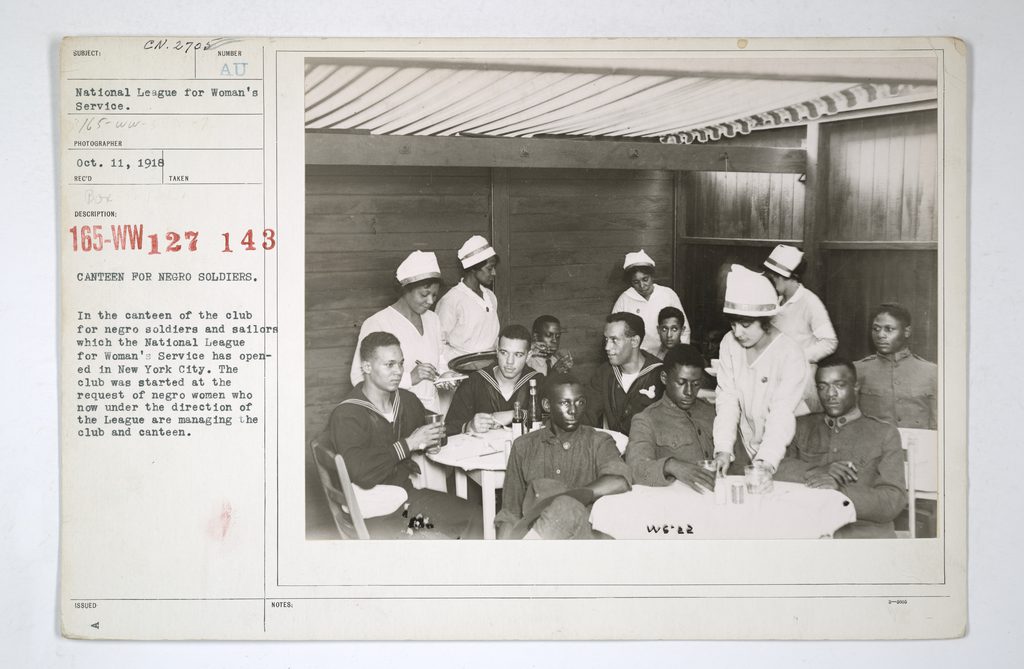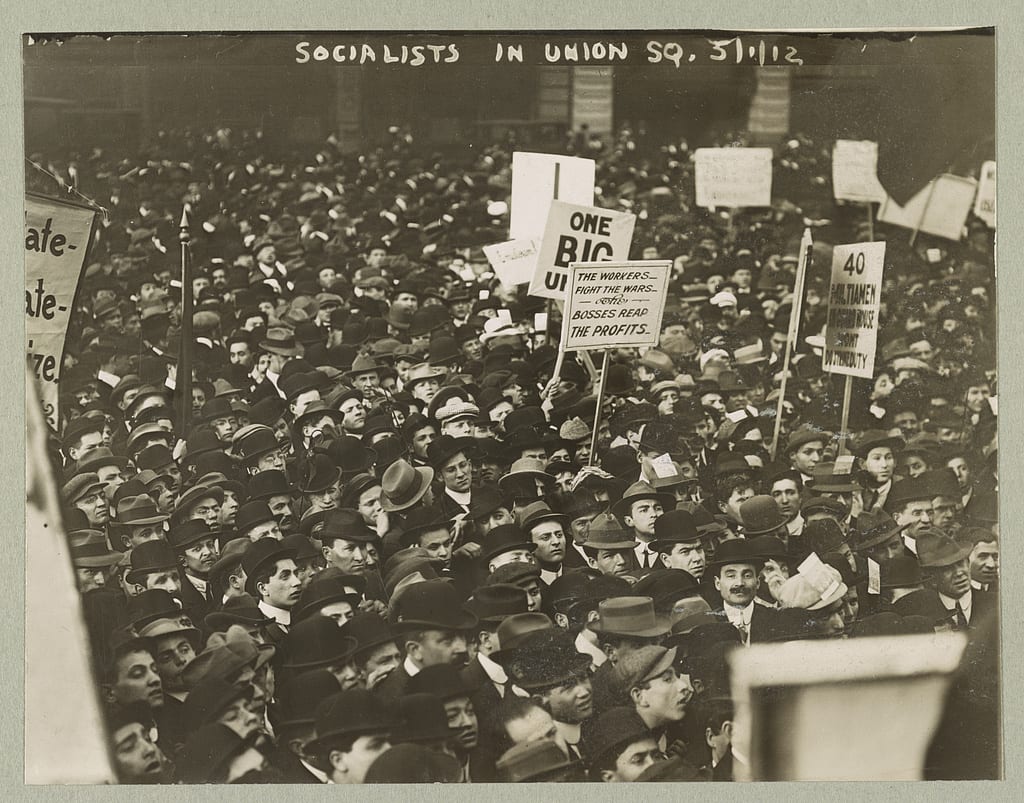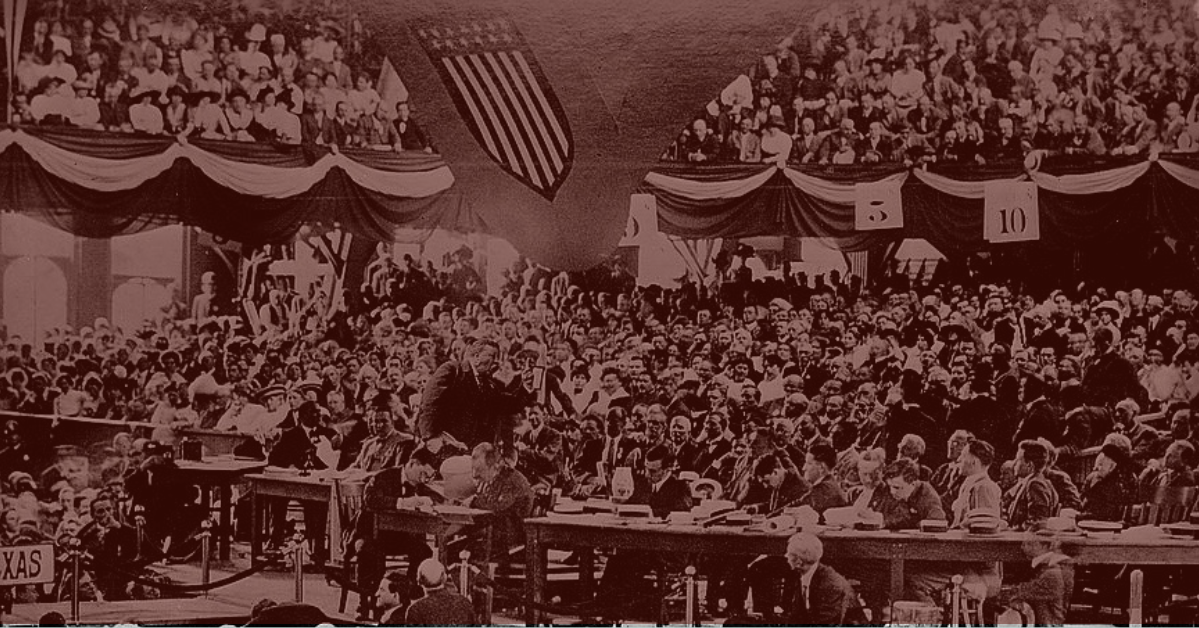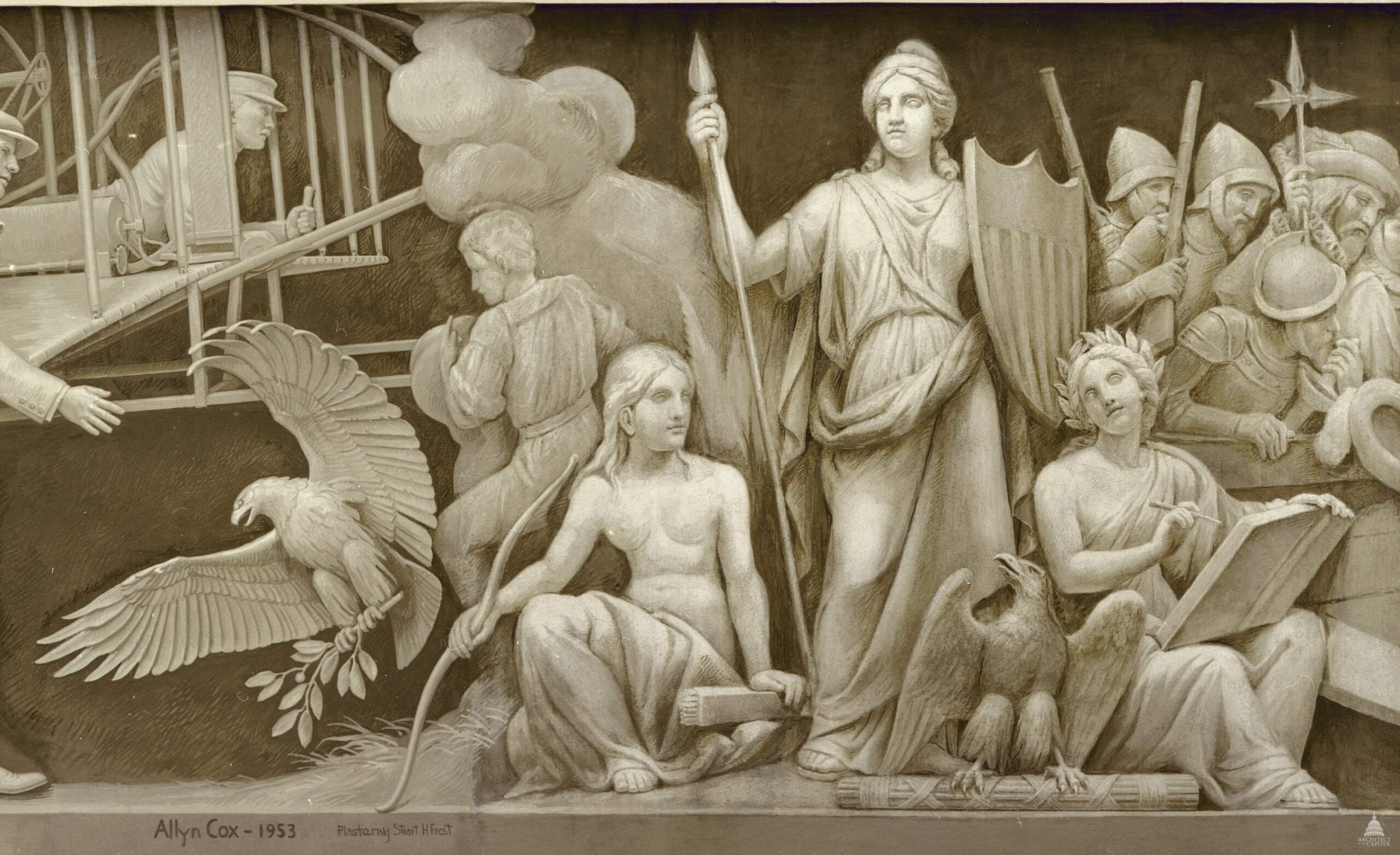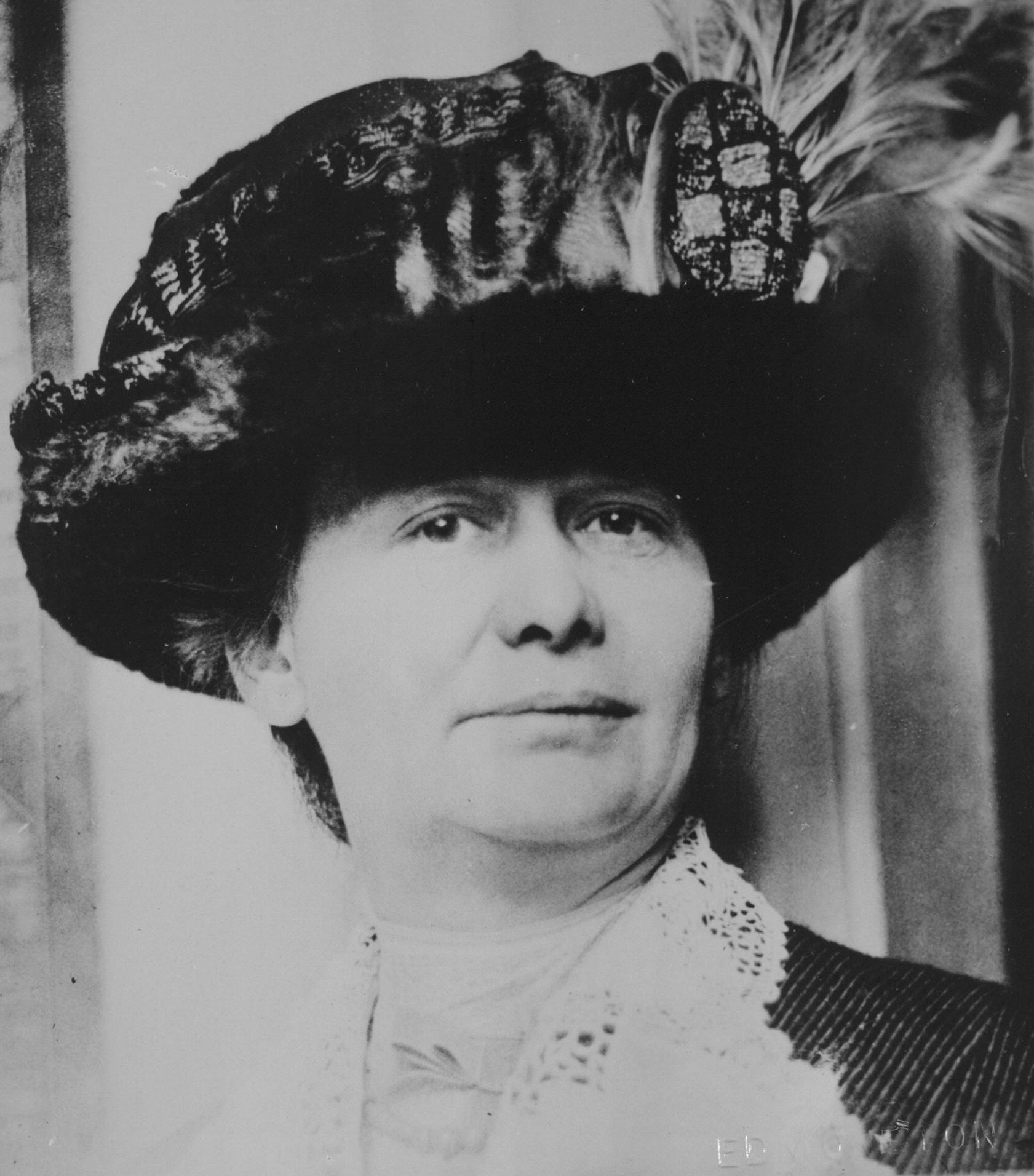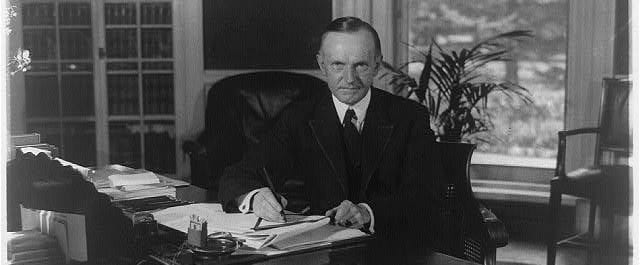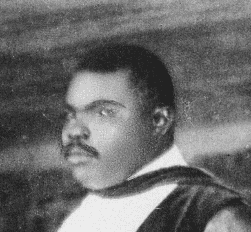
No related resources
Introduction
In the early 1900s, some American Christians claimed they began to experience a dramatic revival marked by behaviors akin to those described in the Acts 2:1-13 when the Holy Spirit descended upon the first believers at Pentecost. A powerful public speaker, Aimee Semple McPherson (1890–1944) helped to popularize the so-called Pentecostal movement in early twentieth century America, traveling around the country hosting revival meetings in churches, tents, and auditoriums from 1915 through the early 1920s in what she called the “Gospel auto.”
In this essay, published in her first memoir This is That, McPherson addresses the common objection to Pentecostal meetings as disorderly; she argues that each of the “manifestations of the spirit” commonly experienced at her revival meetings (dancing, shouting, shaking, falling prostrate, as well as speaking in and interpreting tongues) are biblical and ongoing evidences of God’s power in His church.
Shortly after This is That was published, McPherson settled in Los Angeles where she built an enormous circular church known as the Angelus Temple. With a seating capacity of over 5,000, Angelus Temple was the largest auditorium of its time and has sometimes been called the first “megachurch” in America. Although the cornerstone of the building declares that it was “Dedicated unto the cause of inter-denominational and worldwide evangelism,” McPherson’s theological distinctiveness eventually caused sufficient conflict with non-Charismatic Protestants that the Temple became instead the headquarters for a new denomination, the Foursquare Church.
Source: Aimee Semple McPherson, This is That: Personal Experiences, Sermons, and Writings (Bridal Call Publishing House, Los Angeles: 1919).
Dancing, Shouting, Shaking, Falling Prostrate under the Power, Speaking in Tongues, Interpretation
The power was falling everywhere in the tent, sinners being saved, believers baptized in the Holy Spirit (with Bible evidence, speaking in tongues), sick bodies had been healed, many were leaping, dancing and praising God, the slain of the Lord were many; my heart felt full to the bursting with joy at the sight, and with uplifted hands I was walking up and down the aisles amongst the audience, praising my wonderful Redeemer for the way in which He was working.
Suddenly I felt a restraining, kid-gloved hand laid upon my arm, and a dignified, silk-gowned lady drew me down beside her. Her husband, a fine, dignified type of man, was seated beside her. They had snow-white hair, both of them, and every well-tailored line of their faultless apparel bespoke refinement and culture. This dear lady seemed so sweet, and I was so filled with joy, that I remember I could hardly resist throwing my arms around her and kissing her and shouting “Glory to Jesus.” Her troubled, agitated look checked this impulse, however, and as she began to talk to me in her rapid way, her breast was rising and falling, with her quick breathing and (I was going to say, “indignation,” but hardly think that would be the word to apply to such a sweet and proper personage.)
As she spoke, she alternately gazed through her lorgnette,[1] which hung on a slender thread of gold from her gown, and pointed with it to some manifestations (for the saints were dancing, shouting, and praising God), or tapped it lightly upon her book for emphasis:
“Of course, I believe in the power of God,” she said, “but O, the noise, these awful manifestations! What is the good of them, anyway? Did not Paul say that all things are to be done decently and in order? Now, take, for instance, that dancing and shaking, it seems like confusion, and is not at all necessary. And that falling on the floor and lying for an hour. Do you think that looks dignified or proper?” she demanded. “As for this leaping and shouting, why can not these people praise God in a quiet, orderly way in their heart and give expression to their worship soberly in a quiet hymn of thanksgiving? You know the world would think far more of them,” she added, “and stop criticizing and persecuting if only they would put down these awful manifestations. Oh! Oh! I am so disturbed. Do tell me, what about these manifestations?” . . .
Just a moment, and we will take these things up one by one, but first let me say that when the power of the Holy Spirit is upon a person or an assembly, you can no more stifle the manifestations without quenching the power of the Spirit than you can shut off all air from a fire without extinguishing it, or turn off the water faucet without stopping the flow of water, or turn off the electric light switch without putting out the lights, or cut the telephone wire without breaking the connection. . . .
What About Those Manifestations?
Truly, we have something worth shouting over. Joy always manifests itself. The shouts at ball games, races, political celebrations, etc., are accepted as a usual and expected thing. The day would be considered tame and with something radically wrong and missing without it. Remember how the announcement of peace was met right here in our own country, how they tied down the horns and the whistles, how every conceivable noise-making device was brought forth to swell the sound of jubilee. Now we have heard the proclamation of everlasting peace, from the King who has won the greatest battle ever fought. How can we keep from shouting? There are so many shouting for the devil with none to hinder, that we thank God for those who shout for Jesus.
When shouting is in the Spirit it comes from such depth and rings so true and genuine that none can mistake it. The devil will try to imitate the shout in the camp of the Hebrews, but there will be a hollow, forced sound that does not ring true. There are many who do not like the noise of the shouting, but we advise all such to let Jesus fill them with the same power and glory, to put a shout in their soul, for this is by far the quietest world they will ever live in. In heaven John heard the shouting and praising of the multitude as they cried, “Holy, holy, holy, salvation and honor and dominion belongeth unto Him, till the voice and shouting of the people was as the sound of many waters, and as the voice of great thunder.”[2] Surely those who dislike shouting would dislike heaven, or must learn to join the song. O, how can you look upon such a wonderful Saviour without shouting His praise? And as for those who are cast into hell, “there shall be weeping and wailing and gnashing of teeth.”[3] That will surely be a noisy place, and I would much rather hear the noise of shouts and rejoicing than weeping. Wouldn’t you? . . .
Being Prostrated Under the Power
“What about this being slain, prostrated, lying under the power?” You do not think it looks at all dignified or proper, you say. I wonder whether Peter looked dignified or proper when he lay in the trance on his housetop and saw the vision of the sheet let down, etc. (Acts 10:9 to 16), or John, on the isle of Patmos, when he lay at His (Jesus’) feet as one dead,[4] or Daniel, as he lay in a vision,[5] or Saul, when he fell from his horse in the dust of the road as Jesus revealed Himself to him.[6] It was as though Jesus, when He conquered, got both of Saul’s shoulders to the ground, and he surrendered there and then. ‘Twas not at all dignified. . . .
We might go on to mention Isaiah, Jeremiah, and others who fell prostrate before Him. We might mention the prostrations in the early Methodist church, the Salvation Army, the Welsh Revival, and today, throughout the world, wherever God is pouring out His Spirit, and when I get to heaven I expect to see angels and men before Him prostrate fall as they “bring forth the royal diadem and crown Him Lord of all.” . . .
Genuine and Counterfeit
Are manifestations of the Spirit scriptural? Y-E-S. Are ALL manifestations scriptural? N-O. How can we tell the difference? It is easy to discern, in the Spirit, between the real and the counterfeit. There is a different shine on the face, a different ring in the voice, a majesty and holiness. There will be that which edifies and builds up (but just here remember that your conception of edifying manifestations and that of God may vary. Had you seen the hundred and twenty reeling and staggering like drunken men—Acts 2:13, 15—you might not have thought it edifying, yet God was in it, and Peter said they were filled with the Spirit, and three thousand souls were added to the church that day).
But do we claim that all manifestations are in the Spirit? you ask. We answer, No, for the devil has tried to imitate manifestations as he has everything else. There are also some manifestations in the flesh by those who are anxious for God to manifest Himself and use them, who run before the Lord.
But What Shall We Do in Our Assembly When We Find Manifestations That Are Not of God?
Shall we quench the Holy Spirit for fear of that which is not of the Spirit? Not at all. Do as Aaron did when the enemy sought to counterfeit; you remember, he threw down his rod and it became a serpent. Straightway the magicians threw down their rods and immediately they became serpents. Did Moses and Aaron begin to wail and regret that they had obeyed God, thus giving the enemy an opportunity to manifest himself? Why, no, their God was bigger than the devil. Their serpent opened up his mouth and swallowed up all the other serpents until they were out of sight completely. So will the true Holy Spirit, if we let Him have His way, swallow up and spoil every trick and tactic of the enemy. If you let Him have His way YOU will have no need to fight in this battle, HE will do it all, and get greater glory to Himself than as though there had been no struggle. The counterfeit makes the genuine to shine the brighter. When the Ark is in the midst all earthly goods must fall and be broken before it. Hallelujah!

Conversation-based seminars for collegial PD, one-day and multi-day seminars, graduate credit seminars (MA degree), online and in-person.



